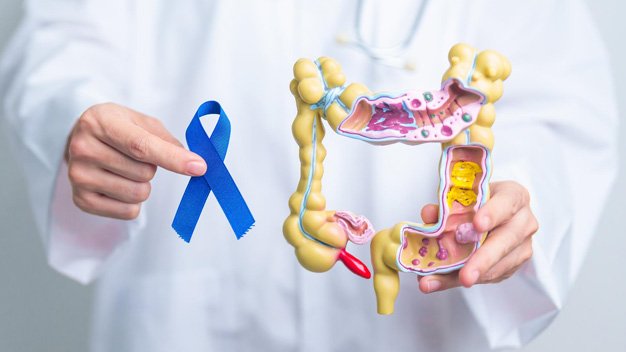
Colon cancer, also known as colorectal cancer, is a serious health problem that affects millions of individuals all over the world. Screening is very important for finding problems early, which can help improve outcomes and survival rates. This article will talk about how important screening is, what the most prevalent symptoms are, and how to treat colon cancer effectively.
Understanding Colon Cancer
Polyps, which are small, harmless growths, are frequently the first signs of colon cancer. It starts in the large intestine. Some of these polyps can turn into cancer over time. To figure out the best treatment approach for colon cancer, you need to know what stage it is in. There are five stages of cancer: Stage 0 (localized), Stage I (early), Stage II (intermediate), Stage III (advanced), and Stage IV (advanced).
Importance of Screening
Screening for colon cancer is very important for finding it early, especially since many people don’t have any symptoms at first. Colonoscopy screening is the best way to check for cancer since it lets doctors see the whole colon and take out polyps before they can turn into cancer.
- When to Start Screening: Most guidelines say that average-risk people should start screening at age 45, although people with a family history or other risk factors may need to start sooner.
- How often to get screened: Colonoscopy screening is usually suggested every 10 years, although this may change depending on your own risk factors.
Common Symptoms of Colon Cancer
It is very important to know the signs of colon cancer so that you can get the right diagnosis. Some of the most prevalent indications are:
- This could mean having diarrhea, constipation, or stools that are different in consistency for more than a few days.
- Blood in the stool or rectal bleeding can be scary and should be checked out by a doctor very away.
- Ongoing discomfort or cramping in the abdomen may indicate underlying problems.
- If you lose weight without trying, it could be an indication of cancer or another serious illness.
If you have any of these signs, you should see a doctor for more tests.
Diagnosis
There are usually a number of ways to find out if someone has colon cancer:
- Medical history and physical exam: A complete look at symptoms and family history.
- Colonoscopy: This test lets you see the colon directly and may let you remove polyps.
- Biopsy: If the colonoscopy finds tissue that doesn’t look normal, a biopsy will be done to see if it is malignant.
- Imaging studies: CT scans or MRIs may be used to find out how bad the condition is.
Treatment Strategies
Once the diagnosis is made, the way to treat colon cancer varies on how far along the disease is. Some common ways to treat are
Surgery for Colon Cancer
Surgery is frequently the primary intervention for localized colon cancer. This could mean:
- Removing polyps: During a colonoscopy, polyps can be taken out. If cancer is found, additional surgery may be needed.
- Partial colectomy: This surgery removes the part of the colon that has cancer and some of the tissue around it.
Chemotherapy for Colon Cancer
Chemotherapy may be suggested for more advanced stages to eliminate cancer cells and lower the chance of recurrence. You can get this treatment before surgery to decrease tumors or after surgery to get rid of any cancer cells that are still there.
Radiation for Rectal Cancer
Radiation therapy is often used with chemotherapy to decrease tumors before surgery or to target cancer cells after surgery in cases of rectal cancer.
Preventing Colon Cancer
To avoid colon cancer, you need to change your lifestyle and be screened often. Some of the most important strategies are:
- A diet high in fruits, vegetables, and whole grains and low in processed meats and meals high in fat can lower your risk.
- Getting regular exercise helps you keep a healthy weight and lowers your risk of getting some types of cancer, such colorectal cancer.
- Both smoking and drinking too much alcohol are connected to a higher risk of colon cancer.
Conclusion
Colon cancer is a dangerous disease that can often be avoided. For effective care, it is very important to find colon cancer early by colonoscopy screening and to know the signs of colon cancer. Many individuals can get better with new treatments for colon cancer, such as surgery, chemotherapy, and radiation.
If you’re worried about your risk of colon cancer or need to make an appointment for a screening, you might want to talk to a doctor. Deepasri Hospital is the best place to go for complete care and skilled management of colon cancer. Our dedicated staff is ready to help you on your health journey.

